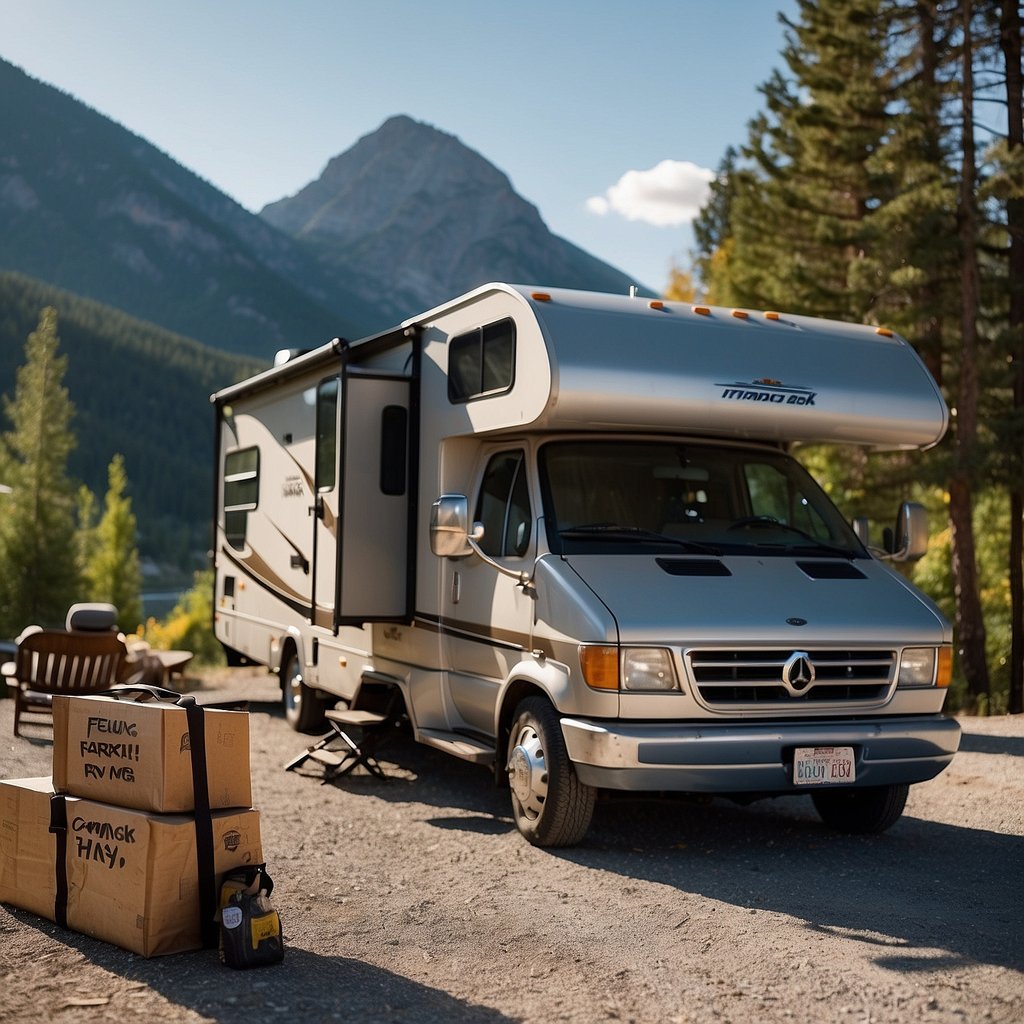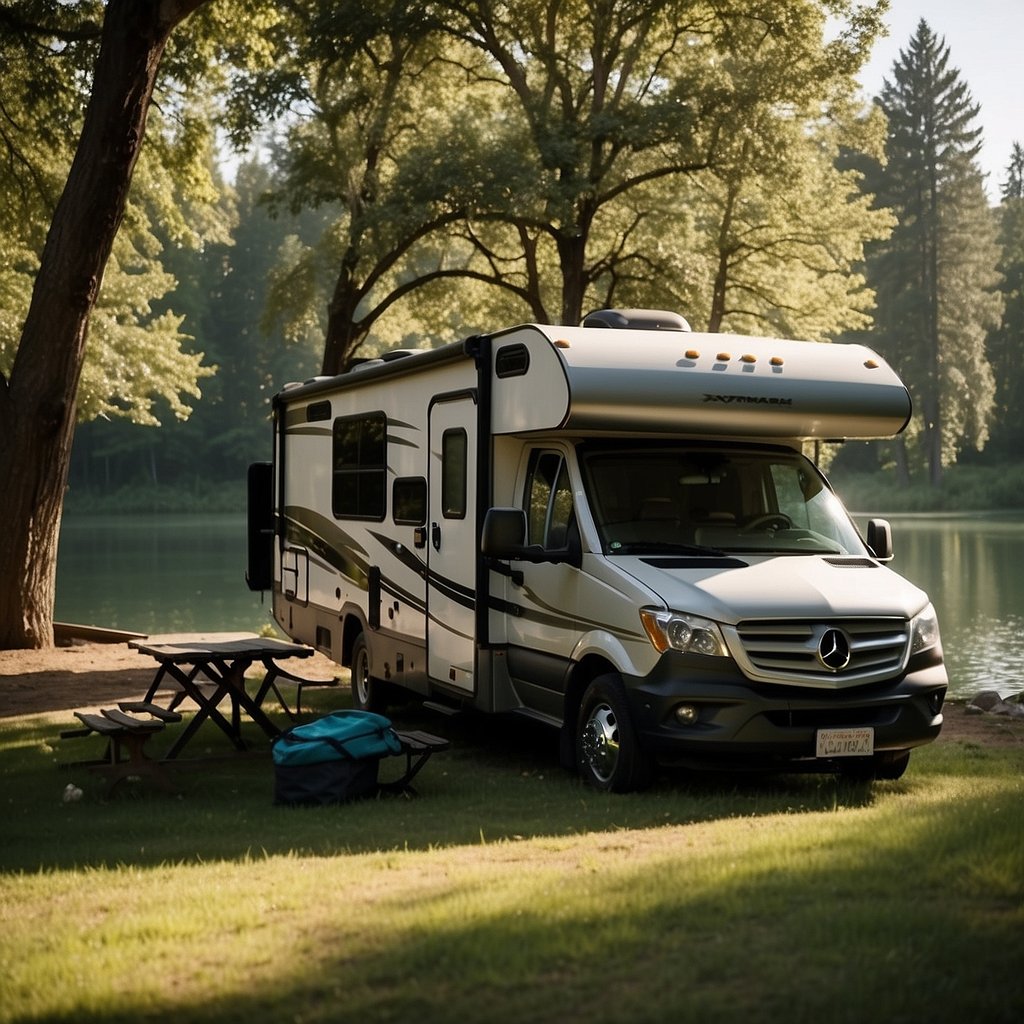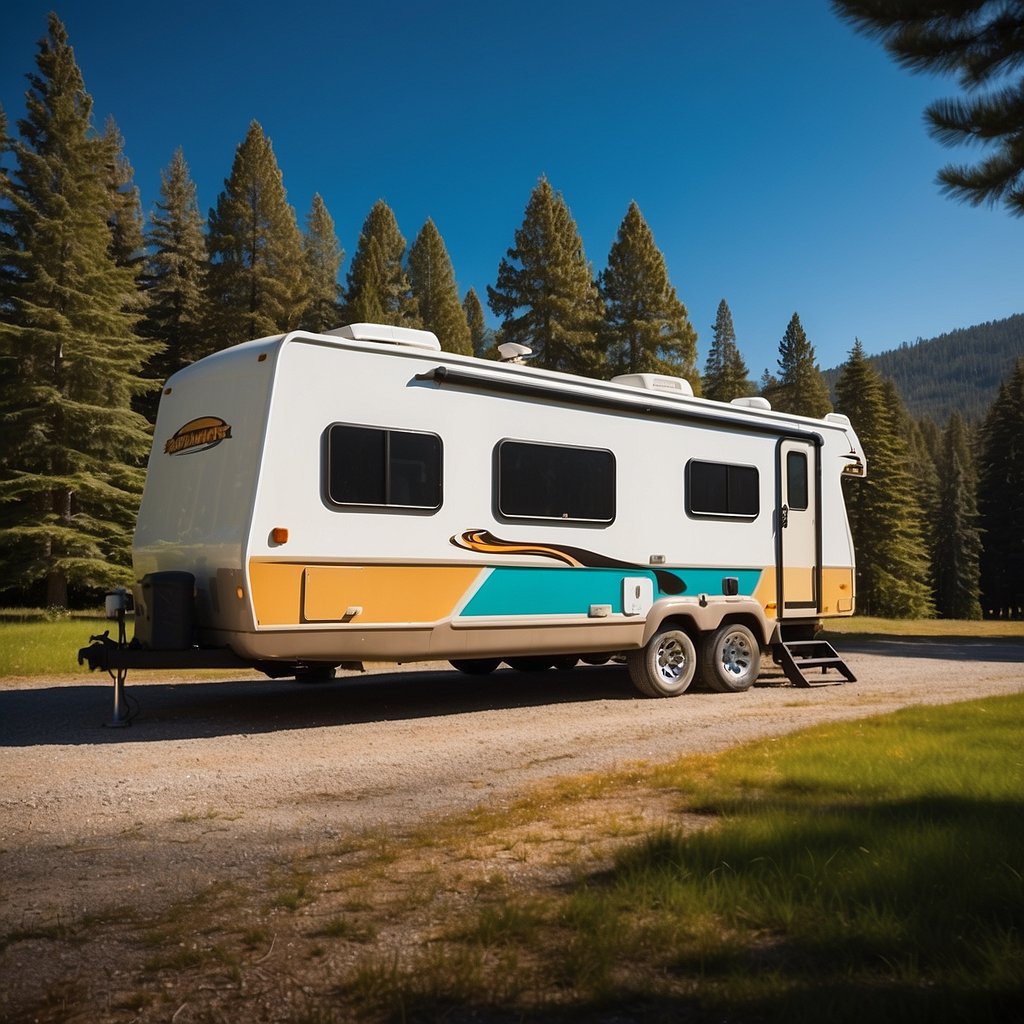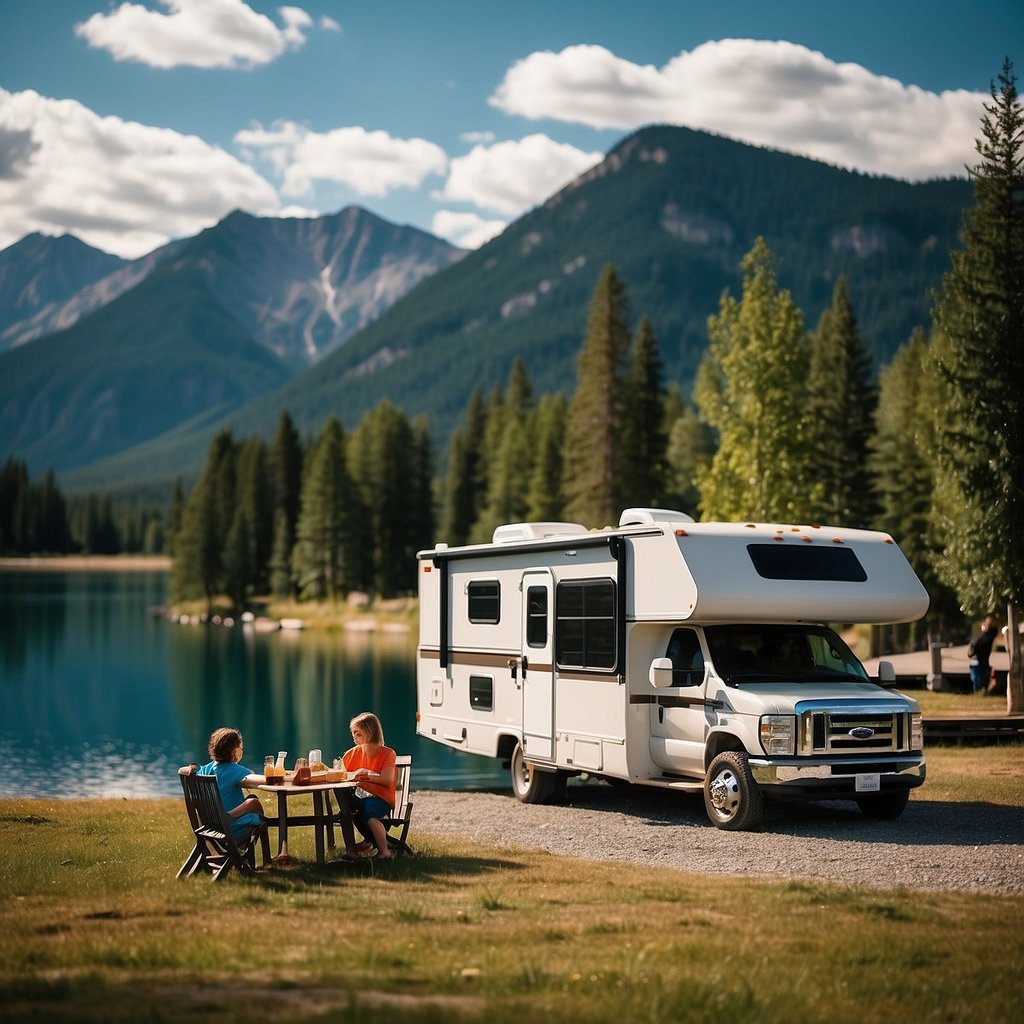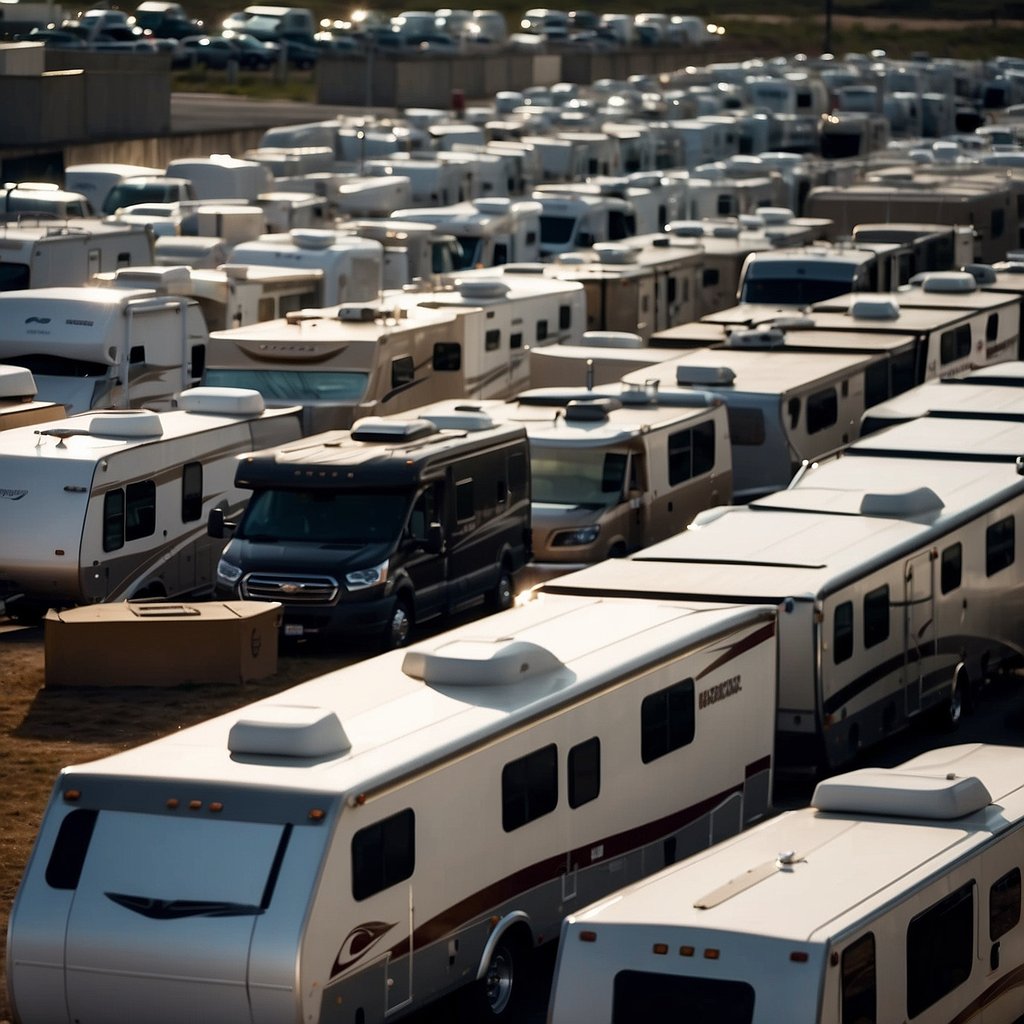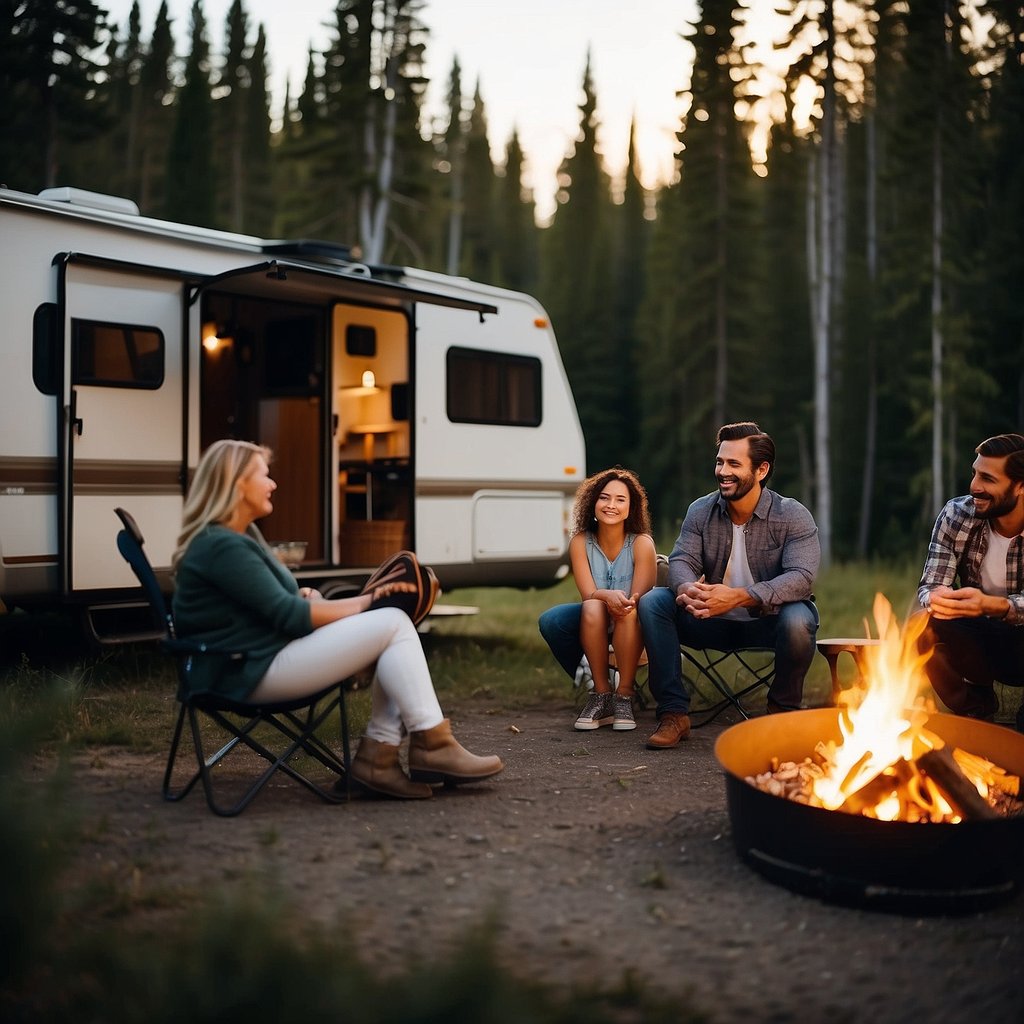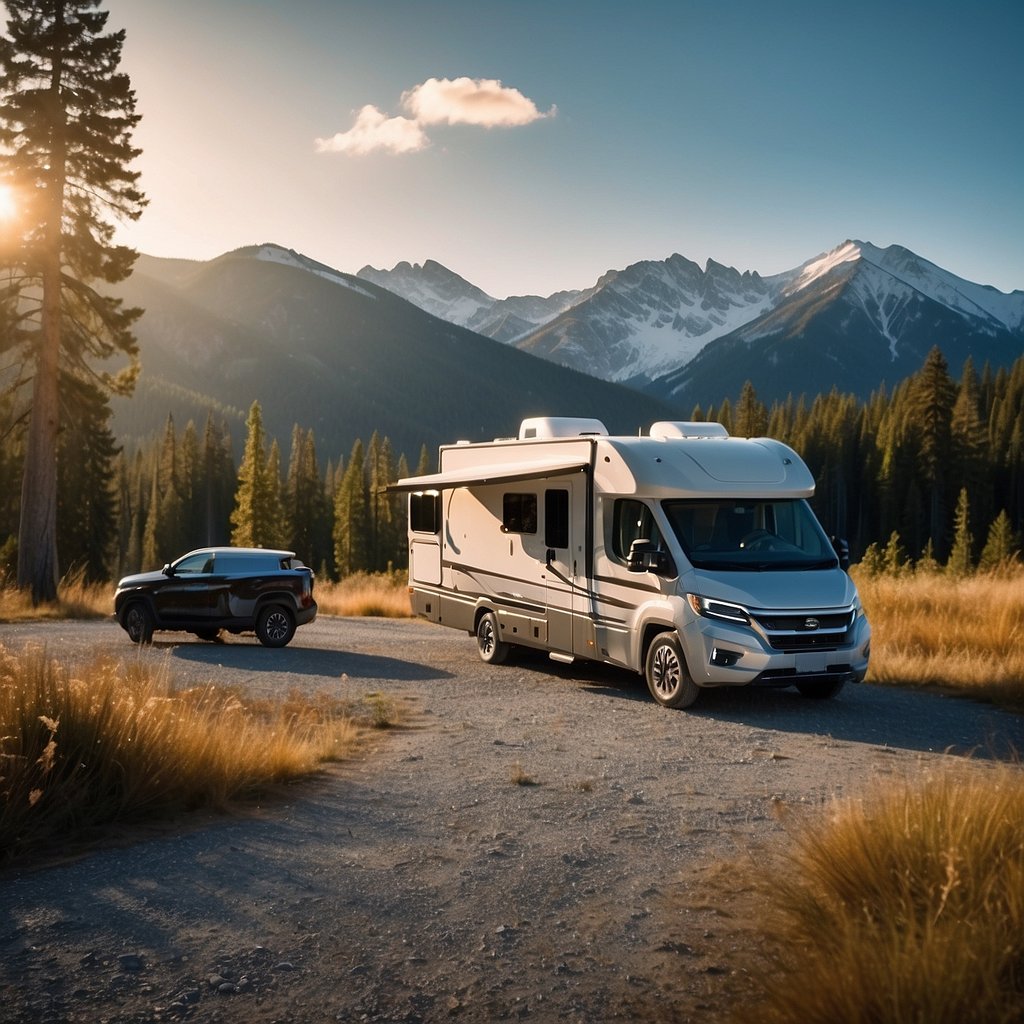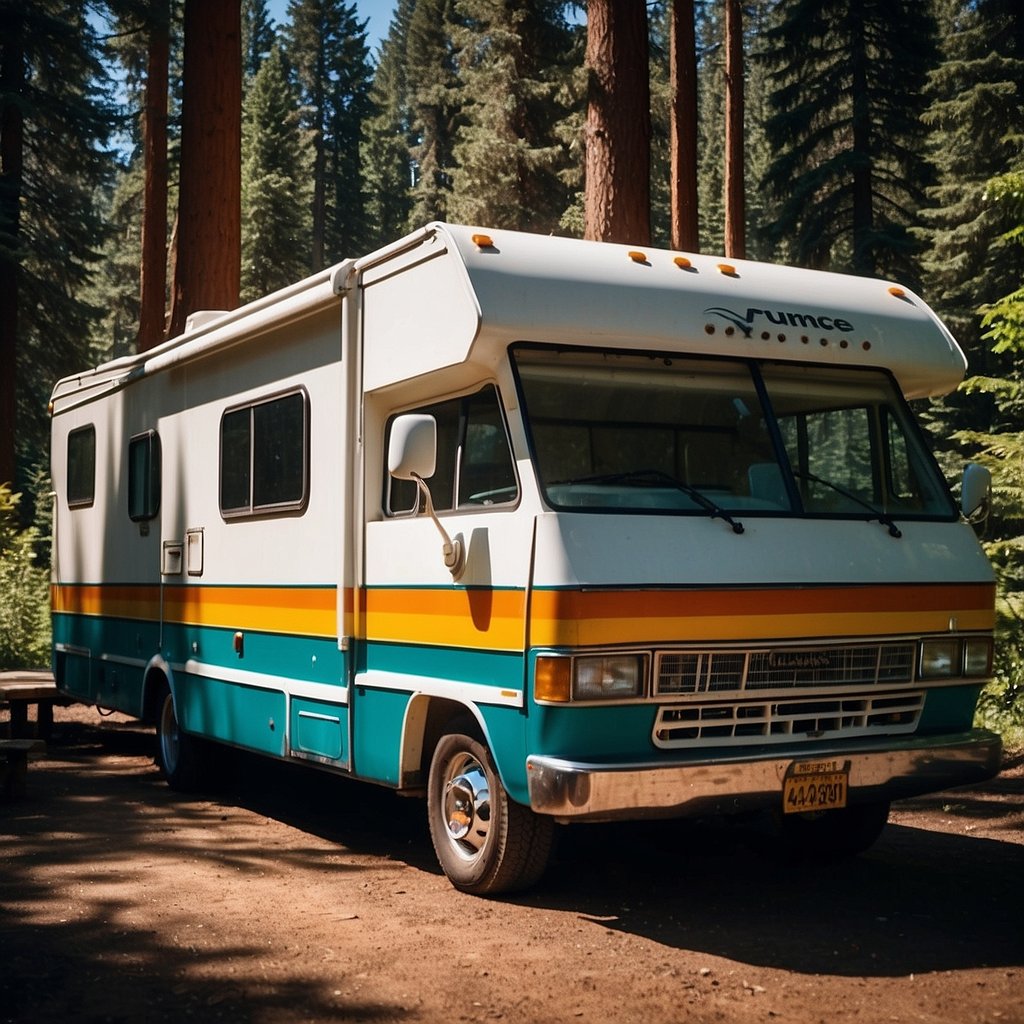Insuring your recreational vehicle (RV) is as significant as insuring your car, if not more. An RV is not just a vehicle, but it also serves as a home on wheels, encompassing unique risks and liabilities. I understand that RV insurance encompasses a blend of standard auto insurance coverage and homeowners’ insurance features tailored to the needs of RV owners. Opting for the right RV insurance policy largely depends on the type of RV, how often it’s used, and whether it’s for recreational purposes or full-time living.
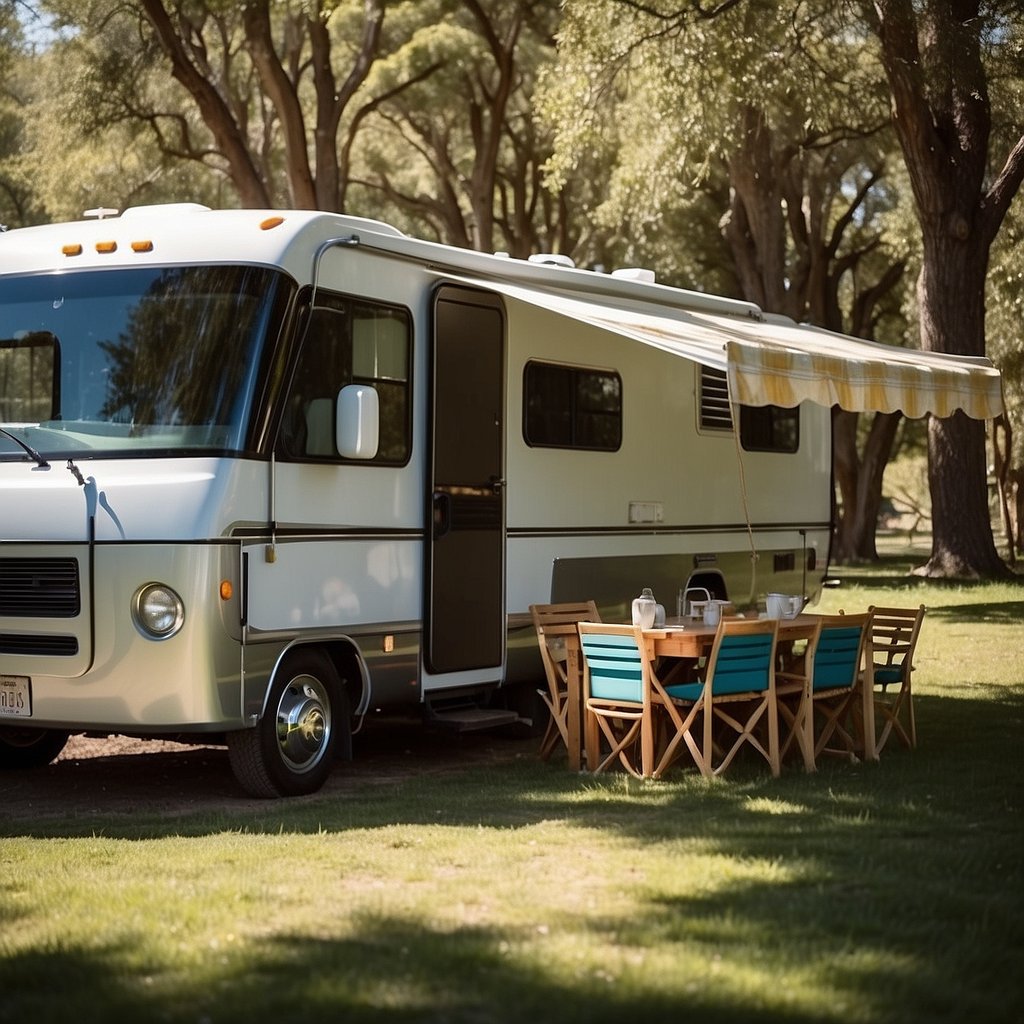
When exploring RV insurance, it’s imperative to consider the different coverages available, such as collision, comprehensive, and liability insurance. Moreover, specific policies cater to the unique aspects of RVs, like personal belongings coverage for items inside your RV and roadside assistance for those unforeseen hiccups on the road. I also recognize that factors influencing the cost of RV insurance include the RV’s size, age, value, and frequency of usage, along with the driver’s record. Discounts for safe driving or bundling with other policies can significantly reduce premiums, and additional features like vacation liability and full-timer coverage address specific RV insurance needs.
Key Takeaways
- RV insurance combines elements of auto and home insurance to protect against unique risks.
- Coverage should be tailored to the RV type, usage frequency, and living situation.
- Costs are influenced by a range of factors, with opportunities for discounts and specialized features.
Understanding RV Insurance
When it comes to protecting your recreational vehicle (RV), it’s crucial to choose the right insurance policy that covers your specific needs, whether you own a travel trailer, motorhome, or camper.
Types of RV Insurance
Travel Trailer and Motorhome Insurance: I understand that the average annual RV insurance premium varies significantly depending on the type of RV. For instance, travel trailers typically cost less to insure than motorhomes due to their different utilities and associated risks.
Full-time vs. Recreational Insurance: If I live in my RV full-time, I would need a policy akin to home insurance, whereas a recreational policy is sufficient for those who use their RVs occasionally.
Coverage Basics
Liability Coverage: It’s clear to me that liability coverage is essential. It protects me financially if I’m responsible for injuries or damages to others in an accident.
Property Coverage: I’m aware that a good RV insurance policy will also cover the cost of damages to my RV. This includes protection from theft, vandalism, and natural disasters.
Policy Structure
Policy Limits and Deductibles: My choice of policy limits and deductibles will directly influence my premium and out-of-pocket costs during a claim.
Factors Influencing Premiums: I recognize from the comprehensive guide that several factors like my RV’s type, its value, my driving history, and my location will impact the premiums I pay.
Ensuring that I have proper RV insurance provides peace of mind, whether I’m parked or on the road. It’s a financial safeguard for what might be one of my most significant investments.
Insurance Coverage Options
When choosing RV insurance, it’s crucial to understand the various coverage options available to protect both your vehicle and personal property. Different policies can provide peace of mind whether your RV suffers damage, you’re held responsible for bodily injury and property damage, or you encounter an uninsured motorist.
Comprehensive Coverage
Comprehensive coverage offers financial protection against risks such as theft, vandalism, and natural disasters. If my RV is damaged due to events beyond human control, comprehensive coverage helps cover the repair or replacement costs, safeguarding my investment from unforeseen situations.
Collision Coverage
Collision coverage is specifically designed to cover the cost of repairs to my RV if it is damaged in an accident or if I hit an object. This type of insurance is vital because it covers the RV regardless of who is at fault for the damage.
Liability Coverage
Liability coverage protects me in the event I’m responsible for causing bodily injury to others or damage to their property while operating my RV. It’s a critical component, as it helps cover legal expenses and settlement costs if I am found legally liable for an accident.
Personal Effects Coverage
Personal effects coverage is important for safeguarding the items inside my RV. From electronics to clothes and personal belongings, this coverage ensures that I’m compensated if my possessions are lost, stolen, or damaged while inside the RV.
Uninsured/Underinsured Motorist Coverage
Finally, uninsured/underinsured motorist coverage is a safety net that provides me with peace of mind knowing that in the event I’m hit by a driver without sufficient insurance, I’m not left to handle the medical and repair bills alone. This coverage steps in to cover my expenses up to the policy’s limits.
Specific RV Insurance Policies
I understand that navigating the various types of RV insurance policies can be complex. To make informed decisions, it’s crucial to differentiate between the insurances suited for various RV lifestyles and vehicle types.
Full-Time RV Insurance
Full-time RV insurance is essential for those who use their recreational vehicle as their primary residence. Similar to a homeowner’s policy, full-time coverage not only includes standard liability but also extends to personal belongings and may offer protection against potential loss of use. Carriers like Progressive will tailor these policies to cater to the unique needs of full-time RVers.
Travel Trailer Insurance
Travel trailer insurance policies cater to the needs of those with detachable trailers used for occasional outings or vacations. Travel trailer-specific coverage often provides options for comprehensive and collision, as well as add-ons for roadside assistance and campsite liability. Considering the diversity of travel trailers, from pop-ups to fifth wheels, the details of these policies can vary and should be compared through resources such as TIME’s RV Insurance Guide.
Motorhome Insurance
For motorhome owners, motorhome insurance policies are segmented into classes A, B, and C, each reflecting the size and value of the vehicle. Policies can be typically enhanced with options such as full replacement cost coverage, which is highly advisable for newer or more expensive models. For example, companies like GEICO provide customizable coverage options designed to ensure that you’re covered whether you’re on the move or parked at your favorite spot.
I prioritize a straightforward approach and aim to present the specifics of each policy without complexity, focusing on the essential facts that are relevant to you as an RV owner.
Cost Factors of RV Insurance
When determining the cost of RV insurance, I consider how insurance providers evaluate various aspects relating to the RV itself and the owner’s usage patterns. The rates are influenced by several key factors, which encompass the vehicle type, owner’s driving history, and the level of coverage selected, among others.
Determining Insurance Rates
The rates for RV insurance are influenced by a multitude of factors. The type and age of the RV play crucial roles—newer, larger, and more expensive models often come with higher insurance costs due to their value and repair costs. Additionally, how often and how far I plan to drive my RV can significantly adjust my rates. For full-timers who live in their RV, rates can be similar to a homeowner’s insurance policy.
My personal driving history is also taken into account. A clean driving record can lead to more favorable rates, while past accidents or violations can increase them. Where I plan to store and drive my RV affects the rates as well—areas with higher theft rates or severe weather conditions can result in steeper insurance costs.
Deductibles and Policy Limits
The amount of deductible and the policy limits I choose have direct impacts on my RV insurance premium. A higher deductible typically leads to a lower annual premium, but it means I’ll pay more out of pocket in the event of a claim. Conversely, a lower deductible results in a higher premium, with less for me to pay during a claim.
The policy limits, which represent the maximum amount an insurance company will pay for a covered claim, are another deciding factor in my insurance costs. Higher limits offer more protection but also come with higher premiums. It is essential that I balance these carefully, considering both my budget and the level of financial risk I am willing to accept.
Discounts and Savings
I’ve found that securing discounts is a key strategy to reduce the overall cost of RV insurance. RV owners should be aware of various savings opportunities that insurers offer, which can significantly lower premiums.
Multi-Policy Discount
When I bundle my RV insurance with other policies from the same provider, I unlock the Multi-Policy Discount. I’ve seen savings here accumulate, especially when I combine policies like auto, home, and RV insurance.
Storage Discount
The Storage Discount is a smart way for me to save money when my RV is not in use. By reporting the periods my RV is stored and not on the road, I can see a noticeable reduction in insurance costs.
Safety Features Discount
If my RV is equipped with safety features, such as anti-theft devices and motorized seat belts, I might qualify for a Safety Features Discount. Insurers often reward the installation of such features with lower premiums, acknowledging the decreased risk they represent.
Additional RV Insurance Features
When selecting RV insurance, I consider additional features essential for comprehensive protection. These go beyond standard coverage, tailoring the policy to the unique needs of RV owners.
Roadside Assistance
In my experience, Roadside Assistance is indispensable for dealing with unexpected incidents. This feature typically covers basic RV repairs, like a flat tire change, fuel delivery, or a new battery. It’s a safety net that ensures I’m not left stranded on the side of the road.
Total Loss Replacement
Total Loss Replacement is a feature I highly recommend. It essentially provides a new, comparable RV if my vehicle is declared a total loss within a specified time frame from its purchase as new. This aspect of coverage provides significant peace of mind, especially for those of us investing in newer models.
Emergency Expense Coverage
Lastly, Emergency Expense Coverage is crucial for instances when I’m far from home and an emergency occurs. If my RV is not usable due to a covered loss, this feature can help cover the cost of a hotel stay and transportation. It’s an additional layer of security that supports me in moments of unexpected need.
Choosing an RV Insurance Provider
When I select an RV insurance provider, I prioritize a balance of coverage options, customer service quality, and the ease of doing business with an agent.
Comparing Companies
In my experience, Progressive is often touted for its comprehensive coverage. However, I’ve found that companies like Good Sam, National General, and GEICO also have competitive offerings when it comes to RV insurance. Therefore, it’s crucial to compare not just the premiums, but also the specifics of the coverage, such as the policy inclusions and exclusions. A straightforward comparison involves:
- Coverage Limits
- Deductibles
- Add-On Options
- Discounts
This approach allows me to evaluate which provider offers the most tailored plan for my RV lifestyle and budget.
Customer Service and Support
Customer service is an indispensable aspect of RV insurance. Nationwide and Safeco have commendable reputations in customer support, which gives me peace of mind knowing that I can depend on a responsive team in times of need. I look for providers that offer:
- 24/7 Claims Reporting
- Online Account Management
- Robust FAQ Sections
- Positive Reviews on Customer Service
Customer support that is readily available and equipped to assist efficiently can make a significant difference if ever I face a situation that requires their help.
Insurance Agent Interaction
The role of an insurance agent cannot be overstressed. A good relationship with an agent can make the insurance process smoother. Providers like Good Sam and National General often highlight their personalized agent services. I prefer an agent who:
- Is attentive to my specific needs
- Can explain policy details in clear terms
- Goes above and beyond to ensure I have the suitable coverage
Ultimately, my interaction with an insurance agent is pivotal in helping me navigate my policy choices and ensuring I have the right protection for my RV.
RV Insurance for Different Types of RVs
Selecting the right RV insurance involves understanding the specific needs of your recreational vehicle. Whether you own a motorhome or a towable model, insurance options will vary.
Insuring Motorhomes
Motorhomes are categorized into Class A, Class B, and Class C. Each class has unique features that affect insurance coverage.
- Class A Motorhomes: These are the largest types, often resembling commercial buses in size and amenities. Due to their value and size, insuring a Class A motorhome typically involves higher premiums to cover potential damages both to the vehicle and the amenities inside.
- Class B Motorhomes: Known as camper vans, Class B motorhomes are the smallest in the motorhome family. They are cheaper to insure than Class A’s partly because they are easier to navigate and less costly to repair.
- Class C Motorhomes: These strike a balance between Class A and Class B in size. Insurance for Class C motorhomes might be less expensive than Class A but more than Class B, reflecting their mid-range size and value.
Insuring Towable RVs
Towable RVs include several types, each requiring a tailored insurance approach.
- Fifth-Wheel Trailers: They are often large and luxurious, requiring a pickup truck with a special hitch. The insurance for fifth-wheel trailers considers not only the value of the trailer but also the potential risk associated with towing a large item.
- Conventional Trailers: These traditional trailers come in various sizes and are towed behind vehicles. Insurance policies for these can vary widely based on length, amenities, and overall value.
- Pop-Up Campers: The smallest and most basic towable RVs, pop-up campers, are lightweight and compact. They can be more affordable to insure because they’re less expensive and easier to replace or repair if damaged.
Insurance Considerations for Unique Situations
When traveling to different countries or living in your RV full-time, I know that it’s critical to understand how insurance can vary based on your unique needs. Each scenario requires specific coverage that addresses the legal and practical aspects of your RV lifestyle.
RV Insurance in Canada and Mexico
Venturing into Canada or Mexico with my RV presents a set of insurance challenges unique to these countries. For example, standard U.S. policies typically do not provide coverage once I cross into these territories. It’s vital to obtain an insurance endorsement or a separate policy that meets the legal requirements of Canada or Mexico. Canadian policies, for instance, should align with their provincial insurance mandates. If I plan to travel to Mexico, Mexican liability insurance is legally required, as U.S. policies are not recognized there. I ensure that my coverage includes protections tailored to the risks present in these countries, such as higher liability limits or specific peril coverage.
- Mexico: I must secure a liability policy from a Mexican insurer.
- Canada: I verify that my policy complies with the specific province I’ll visit.
Full-Time RV Coverage for RV Full-Timers
Living as an RV full-timer, I recognize that I need a coverage plan reflecting my home-on-wheels’ status as my primary residence. Full-time RV coverage goes beyond standard recreational policies by offering protection similar to a homeowners policy. This includes personal liability, medical payments to others, and loss assessment, which are crucial since my RV serves as both my vehicle and home.
- Personal Liability: This is similar to homeowner’s insurance, protecting me in the event someone is injured in or around my RV.
- Medical Payments to Others: In case someone requires medical treatment due to an incident associated with my RV.
- Loss Assessment: This covers me for certain assessments that may be levied by RV associations in the event of a covered loss.
Choosing the right insurance as an RV full-timer means considering the additional risks associated with living in an RV full-time and ensuring my policy addresses these unique needs.
Additional Coverages and Exclusions
In my exploration of RV insurance, I’ll detail not just the common coverage options but also the specific add-ons and critical exclusions that policyholders may encounter. Understanding these will ensure I am adequately prepared for any scenario that might arise during my travels.
Personal Injury Protection
Personal Injury Protection (PIP), often a requirement in no-fault states, is coverage that I find crucial. It covers my medical expenses and, at times, lost wages if I’m injured in an RV accident, regardless of who is at fault. PIP is a key component of my insurance that provides a layer of financial security.
Pet Injury Coverage
For those like me who travel with pets, Pet Injury Coverage is an indispensable add-on. This inclusion tends to cover veterinary expenses if my furry companion is injured in an accident while in the RV. Some policies may also cover replacement costs if a pet is lost or passes away as a result of the accident.
Exclusions and Limitations
Every insurance policy has its exclusions and limitations, which are just as important for me to understand as the coverages. Common exclusions in RV insurance can include:
- Liability Insurance: I’m aware this does not cover my RV or personal items; it only covers damage or injuries to others if I’m at fault.
- Property Damage Liability: This ensures I’m covered for damage to someone else’s property, but doesn’t cover damage to my property.
- Bodily Injury Liability: This is essential to cover other people’s injuries that I might be liable for, yet it doesn’t cover my own injuries.
- Medical Payments Coverage: While it covers medical costs for me and my passengers regardless of fault, there is usually a limit to this coverage.
Additionally, things like wear and tear, mechanical failure, or damage from rodents are generally not covered. Finally, restrictions can apply to where and how I can use my RV, which might affect coverage, and vacation liability coverage becomes important when my RV is stationary and being used as accommodation.
Frequently Asked Questions
Navigating the world of RV insurance can be complex, but as an expert, I’m here to clarify the most common inquiries. From understanding cost factors to exploring state-specific regulations, I’ll provide you with the essential information needed.
What factors determine the cost of RV insurance?
Several elements impact the cost of RV insurance, including the type of RV, usage frequency, and personal driving history. Additional factors such as storage location and selected coverage options also play a significant role in determining your rates.
How does RV insurance vary by state, such as in California?
Insurance requirements can differ from state to state. California, for instance, has specific mandates about minimum liability coverage for RVs which can affect the insurance premiums there. Always check your state’s guidelines to ensure compliance.
What discounts are available to seniors seeking RV insurance?
Seniors often qualify for discounts on RV insurance based on age, driving experience, and possibly membership in certain organizations. It’s essential to inquire about senior discounts as they can significantly lower insurance costs.
How do insurance needs differ for various types of RVs?
Insurance needs vastly differ among the different classes of RVs. For instance, a Class A motorhome typically requires more coverage compared to a smaller, towable RV due to size and value. Each RV class has unique insurance considerations.
Which companies are known for offering the best RV insurance coverage?
Some companies stand out for their RV insurance policies. While the “best” can be subjective, it’s important to research and compare policies from providers renowned for their comprehensive coverage and excellent customer service.
What are the benefits of joining an auto club’s RV insurance program like AAA’s?
Joining an auto club’s RV insurance program can provide numerous benefits, including exclusive member discounts, 24/7 roadside assistance, and additional perks such as trip interruption coverage. These programs often offer a comprehensive suite of services tailored to RV owners.
